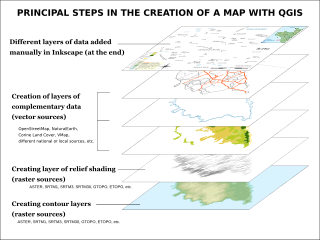Today we’re announcing the second round of Individual Engagement Grantees!
These grants from the Wikimedia Foundation support individuals and small teams of Wikimedians to experiment with new ideas aimed at having online impact on Wikimedia projects. We’ve learned a lot from the first round of IEG grantees over the past 6 months, and are delighted to see what this next group will share with the world.
7 projects have been recommended by an IEG committee of volunteers and approved by WMF for this round. These selections represent a broad range of projects focusing on activities from outreach to tool-building and are all aimed at connecting and supporting community. Grantees are trying out new ways of engaging with women and young Wikipedians, fostering participation in Africa, and supporting cartographers, researchers and developers to better engage with projects like Commons, Wikidata, and Wikipedia.
The selected projects for 2013 round 2 are:
- Wikimaps Atlas, led by Arun Ganesh and Hugo Lopez, funded at $12,500. Hugo and Arun will be building a system to automate the creation of maps in standardized cartographic style using the latest open geographic data. With new workflows and scripts, they aim to make it easier for Wikimedia’s cartographers to generate and update maps for use in Commons, Wikipedia, and beyond.
- Mbazzi Village writes Wikipedia, led by Paul Kikuba with collaboration from Dan Frendin, funded at $2880. This project is a collaboration between Mbazzi villagers, Wikimedia Sweden, and the Wikimedia Foundation to build a Wikipedia center in Uganda where volunteers can to contribute to Luganda Wikipedia, particularly focusing on articles related to sustainable development.

- What is about – C’est quoi. A series of communication tools about Wikipedia in Cameroon, led by Marilyn Douala Bell and Iolanda Pensa with collaboration from Michael Epacka, funded at €15,000. The team in Douala, Cameroon will engage local artists to create comics, video, and other materials to raise awareness about Wikipedia and free knowledge.
- Visual editor gadgets compatibility, led by Eran Roz and Ravid Ziv, funded at $4500. The team aims to map, organize, and surface lists of gadgets used in different language versions of Wikipedia to improve sharing of gadgets across language communities. They’ll also be piloting and documenting an approach for adapting the most-used gadgets for Visual Editor compatibility.
- Wikidata Toolkit, led by Markus Krötzsch with collaboration from students and researchers at Dresden University of Technology, funded at $30,000. Markus’ team will develop a demonstrator toolkit for loading, querying, and analysing data from Wikidata. The project experiments with ways to give developers, researchers, and Wikimedians easier access to use Wikidata in applications, research, and other projects.
- Women Scientists Workshop Development, led by Emily Temple-Wood, funded at $9480. Emily is piloting a model of regular, incentivized editing workshops aimed at college-aged women to encourage them to become regular contributors to Wikimedia projects and combat systemic bias with quality content. If the approach is successful, she’ll use lessons learned in order to develop a scalable kit for other groups to use.
- Finally, we’ve provisionally approved a 7th project – Generation Wikipedia, led by Emily Temple-Wood and Jake Orlowitz, funded at $20,000 – provided that legal dependencies can be satisfied. This project would pilot a week-long summer conference for young Wikipedians and Wikimedians from around the globe to connect, share skills and build leadership and community capacity among our newest generation of editors.
The 10 grantees from Cameroon, Uganda, India, Israel, France, Italy, Germany and the United States will begin their projects in the new year; most will run from January through June 2014. They’ll be regularly sharing progress and lessons-learned from their experiments, so please visit their pages on Meta-wiki for project information and updates in the coming months.
Thanks to everyone who boldly created a project idea or shared feedback and suggestions in this round! The next round of Individual Engagement Grant proposals opens on 1 March – we look forward to seeing more of your ideas and engagement in 2014.
Siko Bouterse, Head of Individual Engagement Grants, on behalf of the Wikimedia Foundation and the IEG committee

Can you help us translate this article?
In order for this article to reach as many people as possible we would like your help. Can you translate this article to get the message out?
Start translation

